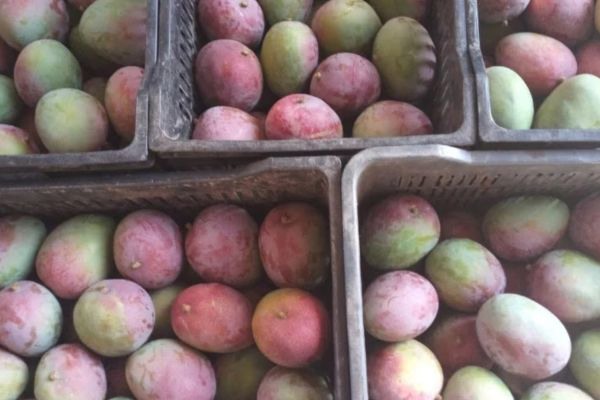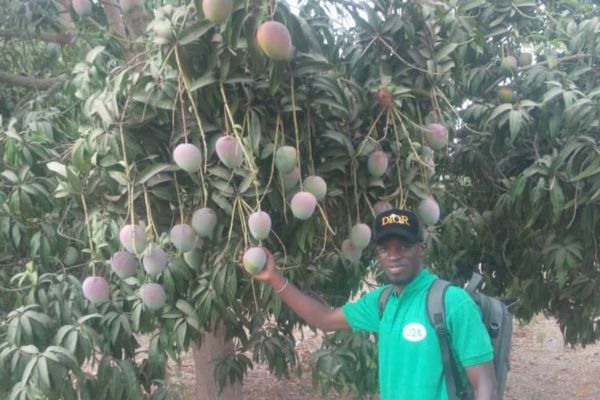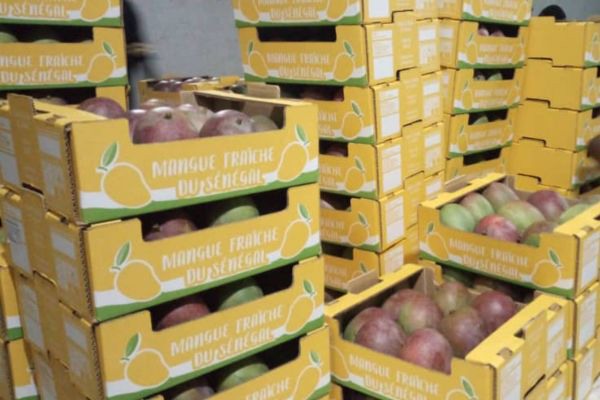Senegalese mango producers are pleased with good weather conditions, which is not the case in all West African countries, according to Mohamed Mbengue of the Unionagri Des Niayes.
"Senegalese mango producers enjoy good climatic conditions, which is not the case in all West African countries," says Mohamed. "This is especially the case in the Niayes area, which is the main basin of mango exports, and which has a unique agroclimate in West Africa and promotes the optimal development of horticulture, mainly mango."
"Temperatures have risen slightly lately. The climate is hot and dry, which is good news for producers, especially in the Niaye region where harvests are expected at the end of June. In Casamance, harvesting begins as early as next week."
According to Mohamed, the harvest in Niaye will be slightly delayed, as it usually begins in late June. "Before the improvement in temperatures, the cold period caused a delay in fruit development."

The amount of rainfall is also satisfactory according to Mohamed. "Unlike other countries in the region, we have had good rainfall and flooding is sufficient for the mango crop. This bodes well for yield and sizes."
Producers and exporters are also enjoying strong European demand, Mohamed assures. "Senegalese origin is very appreciated by the European consumers. Its quality is incomparable, whether it is with competition in West Africa or elsewhere. We have a rate of coloring that reaches 70%, and more sizes 6, 7, 8, 9, that are unobtainable in Burkina Faso, Mali, or Côte d'Ivoire. Our customers testify how good our product is in terms of aesthetics and taste."
This makes more investors enter the mango sector in Senegal, which translates into more acreage and volumes, according to Mohamed, who adds, "No worries about Senegalese volumes this year, we expect larger harvests. The sector is currently facing the problem of fruit flies, but has the support of the government, which has provided the means to combat fruit flies at national level "

In terms of demand, "it is growing and comes especially from European countries, such as the Netherlands, Germany, France, Spain, with a new and growing demand from Morocco."
But prices remain a thorn in the side of producers: "We still can not impose the prices we want. The balance of power is always in favor of our European customers, and prices have not changed in recent years, and are between 3-4, or in the best cases 5 EUR/case of 4 kg."

The desire of producers to enter the U.S. market is met with "requirements that we cannot accept," according to Mohamed. "American buyers demand that the trees be treated with specific products, which we refuse because of their potential environmental impact and agronomic and economic dependence. This is what is blocking our efforts to introduce the U.S. market, a void that Mexico is currently filling."
The main disease that impacts Senegalese mangoes, and which is the subject of the disagreement over treatment products, is the fruit fly, according to Mohamed. He adds, "Senegal has opted for integrated pest control as part of the fight against fruit flies. It is a multidimensional model, including sanitation, biocontrol, male fly annihilation techniques, etc., which will allow us to export quality fruit free of fly damage, and in accordance with our own needs and agronomic choices."
For more information:
Mohamed Mbengue
Unionagri Des Niayes
Tel: +221 77 179 04 19
Email: [email protected]
